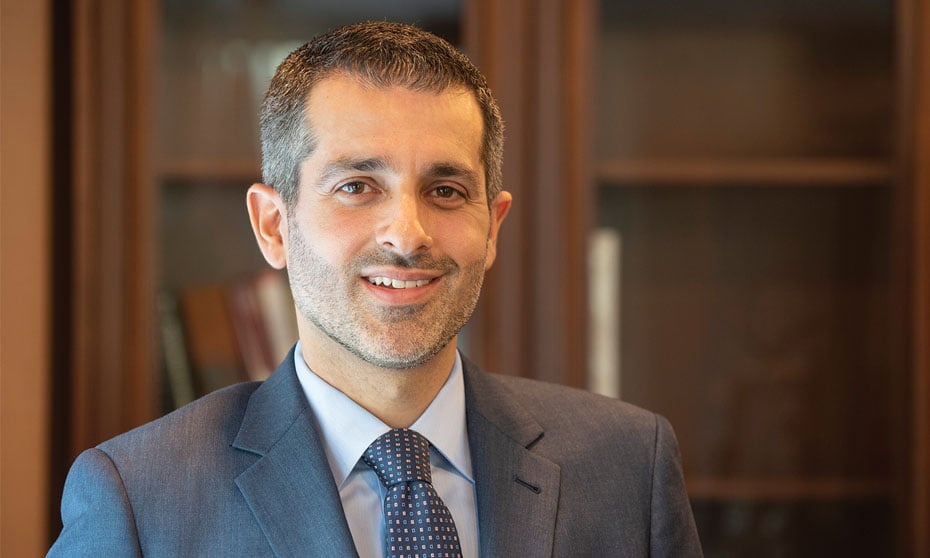Teschner’s experience with chaotic events will serve him well leading the Toronto Police Services Board

For a lawyer who started his career on a typical path, Ryan Teschner has surely benefited from and embraced tumultuous events. As a young associate with a promising career on the partnership path at Heenan Blaikie, his career seemed straightforward. But it was not to be, once the firm dissolved in dramatic fashion.
“I probably never would have left Heenan Blaikie if its doors hadn’t been closed. That was just kind of the more conservative career person that I was. But because of what happened, none of which was in my control, it opened up a world of opportunity that I’m so grateful that I’ve had.”
Teschner is now executive director of the Toronto Police Services Board, but he has had several high-profile roles, touching on some of the most hot-button issues in policing and civilian oversight.
While still at Heenan Blaikie, Teschner was lead counsel to the “Independent Civilian Review Concerning Matters Relating to the G20 Summit.” After the chaotic G20 summit, where police were widely criticized for their conduct, the Toronto Police Services Board asked the former Ontario associate chief justice, John Morden, to conduct a review. Morden was at Heenan Blaikie at the time, and he chose a young Teschner as his lead counsel.
Teschner says Morden had been a key mentor for him at the firm even before they worked on the G20 report. Morden “would have me into his office and talk to me about his career, but [he] also asked me for help. He would ask me to look at arbitration cases that he was arbitrating and early drafts of decisions and early chapters of his book on civil procedure.”
While the chaos of the G20 summit presented a key career-building opportunity for Teschner, the uncertainty was much closer to home when Heenan Blaikie closed its doors. Teschner remembers being at the firm on its last night of existence with his colleague and mentor, Sandra Barton.
“We just kind of looked out at the lights outside of an empty boardroom, with boxes in the hall and paper everywhere, having a hard time coming to grips with what was happening.”
While Teschner followed Barton to Gowlings in 2014, the G20 report was becoming increasingly influential in policing and governance circles. Teschner would be regularly asked to speak about the report and its findings, and that is where he met Waterloo’s then-chief of police, Matt Torigian.
When Torigian left his role in Waterloo and became the deputy minister of community safety for the Ontario government, he asked Teschner to work for him as a special counsel in 2015. This marked the beginning of Teschner’s career in the public service. In addition to the pleasure of not having to docket his time, Teschner was also finding himself more on the client side, evaluating legal advice as only one of many factors to consider in determining an approach.
“Having lived in that world, delivering that service for so long, it was very strange to shift it to being the one who was receiving that service. But it helped me appreciate the pushes and pulls on lawyers. And so, I would often say, at the end of call on a Friday, please don’t work on this on the weekend, go spend time with your family, it can wait until Monday.”
By 2017, Teschner was again pulled into a high-profile role, as special counsel to the assistant deputy attorney general. He was tasked with developing Ontario’s response to Justice Michael Tulloch’s “Report of the Independent Police Oversight Review.” In less than a year, the government was looking for a dramatic transformation to the policing landscape in Ontario.
“It was both immensely rewarding, incredibly intellectually challenging and also very stressful because it was a blend of policy development, legal work interfacing with the politicians of the day, the attorney general or the minister, but also with a very, very wide range of stakeholders.”
Once he had fulfilled his mandate in record time, he then went to work in-house for the Office of the Independent Police Review Director. But with his reputation for handling high-profile political projects well established, another opportunity quickly arose. The current executive director of the Toronto Police Services Board was retiring, and Teschner leapt at the opportunity.
“If you look at what I did with the G20 and what that report was about, which was really about strengthening police governance, and then some of the other work that I did in the following years, [it seemed] to really bring me to this place and bring me to this chair.”
Teschner’ vision for his new role, like many of his career moves, seems clear-eyed despite the many uncertainties around him. “My vision is to help the board, in its role as a robust civilian governor, to break down the traditional barriers that exist when it comes to civilians overseeing or governing the police, to move away from, as we said in the G20 report, this idea that policy and operations are watertight compartments that should never meet.”
It’s a vision, no doubt, that will help guide him through the uncertainties and tumult that he will continue to face in his high-profile role.










